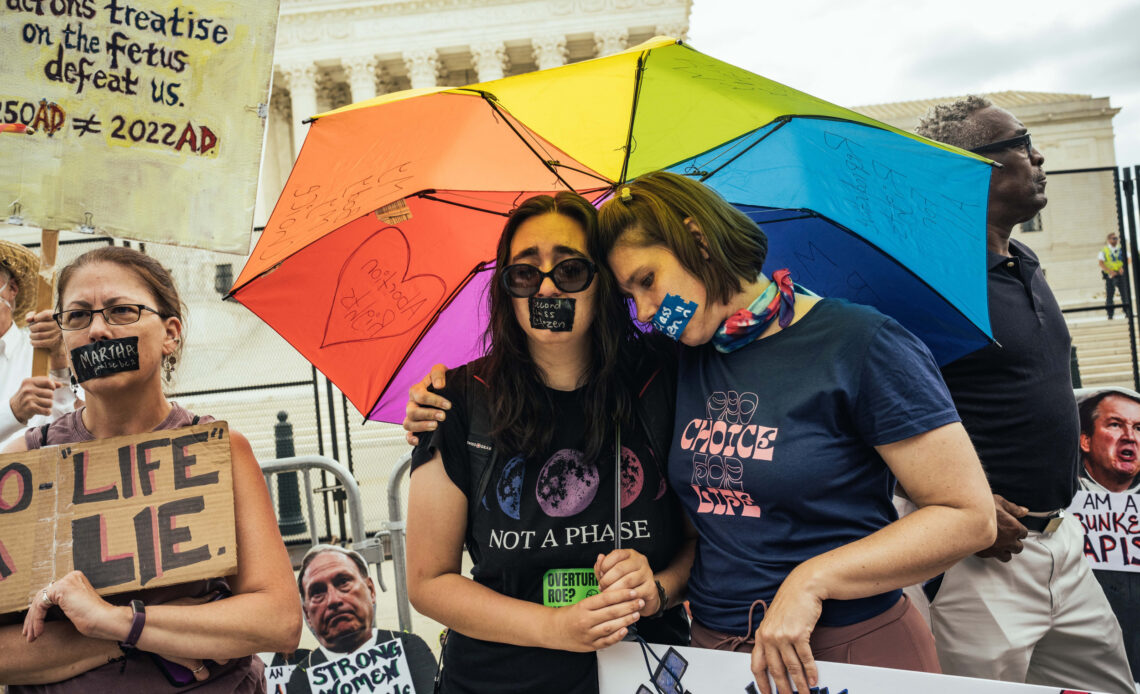As the U.S. enters an era of diminished reproductive rights following the Supreme Court ruling that overturned Roe v. Wade, a path has been cleared for at least 13 states — those with “trigger laws” — to begin penalizing and prosecuting people who violate abortion bans.
Bans are already in effect in Kentucky, Louisiana, South Dakota and Missouri, with at least nine other states expected to follow suit in days.
While penalties vary, those states all now have laws that would charge abortion providers with some class of felony, with punishments that include fines, prison time and revocation of medical licenses.
Some legal experts fear that prosecutors will use intimate pieces of evidence, such as text messages, internet search history and period tracking apps to build their cases, as well as, perhaps, information gathered from medical professionals.
And, though states with abortion bans have focused punishment on the providers and not those seeking or self-managing an abortion, women will still be in the line of fire, said Farah Diaz-Tello, senior counsel and legal director of If/When/How, a reproductive justice group.
“We anticipate an increase in people being criminalized in spite of what the law says, because of the additional surveillance, stigma and scrutiny on pregnancy outcomes on people who are suspected to have had abortions,” she said.
What would a criminal trial look like?
To build their cases, prosecutors, sometimes working hand in hand with law enforcement, will rely on “dragnet criminal surveillance tools” such as geofence warrants that seek information on a person’s whereabouts, online keyword searches, text messages and medical apps, said Emma Roth, a staff attorney with the National Advocates for Pregnant Women.
Evidence can also include GPS data, purchasing history, social media activity and phone call records, she said.
“These mass surveillance tools have the potential to sweep hundreds or thousands of people within their ambit and subject them to potential investigation and prosecution,” Roth said.
Hospital staff and medical professionals who first report pregnant patients or new parents could also deliberately and unwittingly aid in prosecutions, she said.
“These individuals are weaponized as state actors and very frequently misunderstand what their legal obligations are with the mandatory reporting, these tips from medical professionals often start the criminal legal process,” she said.
Between 2006…
Click Here to Read the Full Original Article at NBC News Top Stories…

